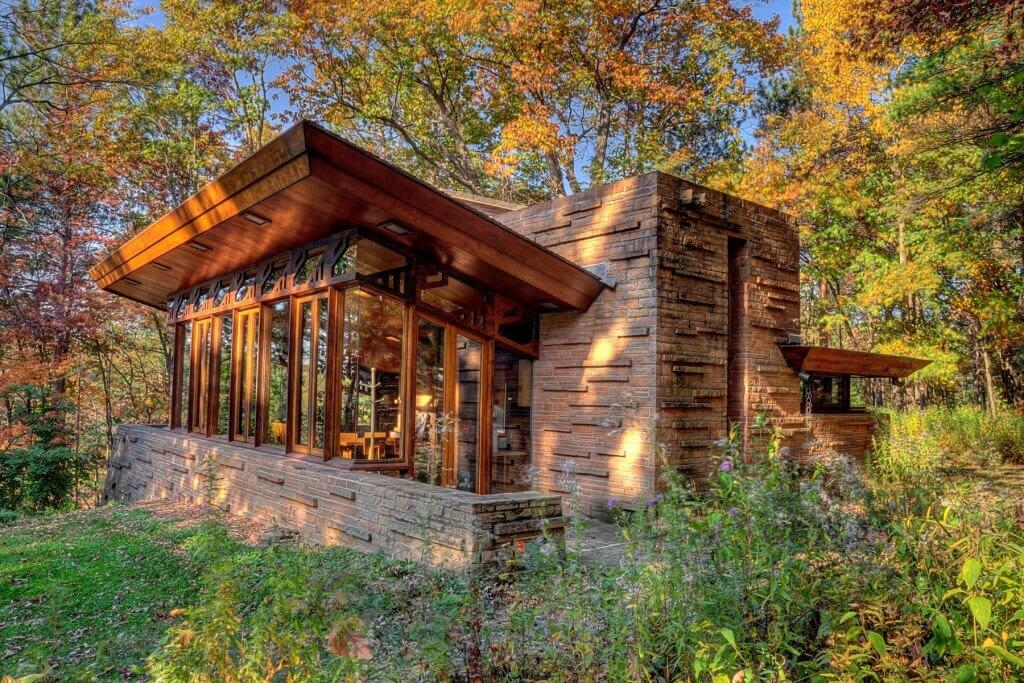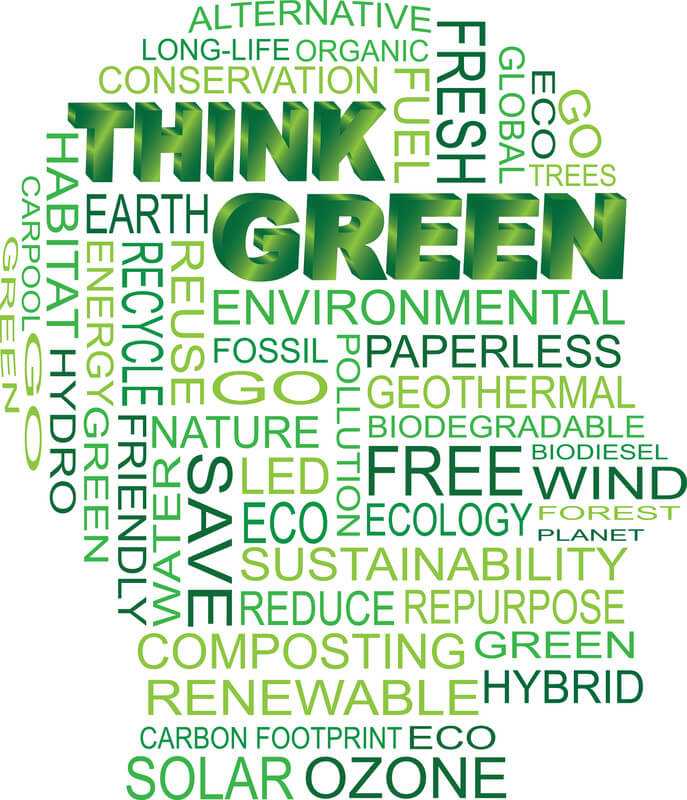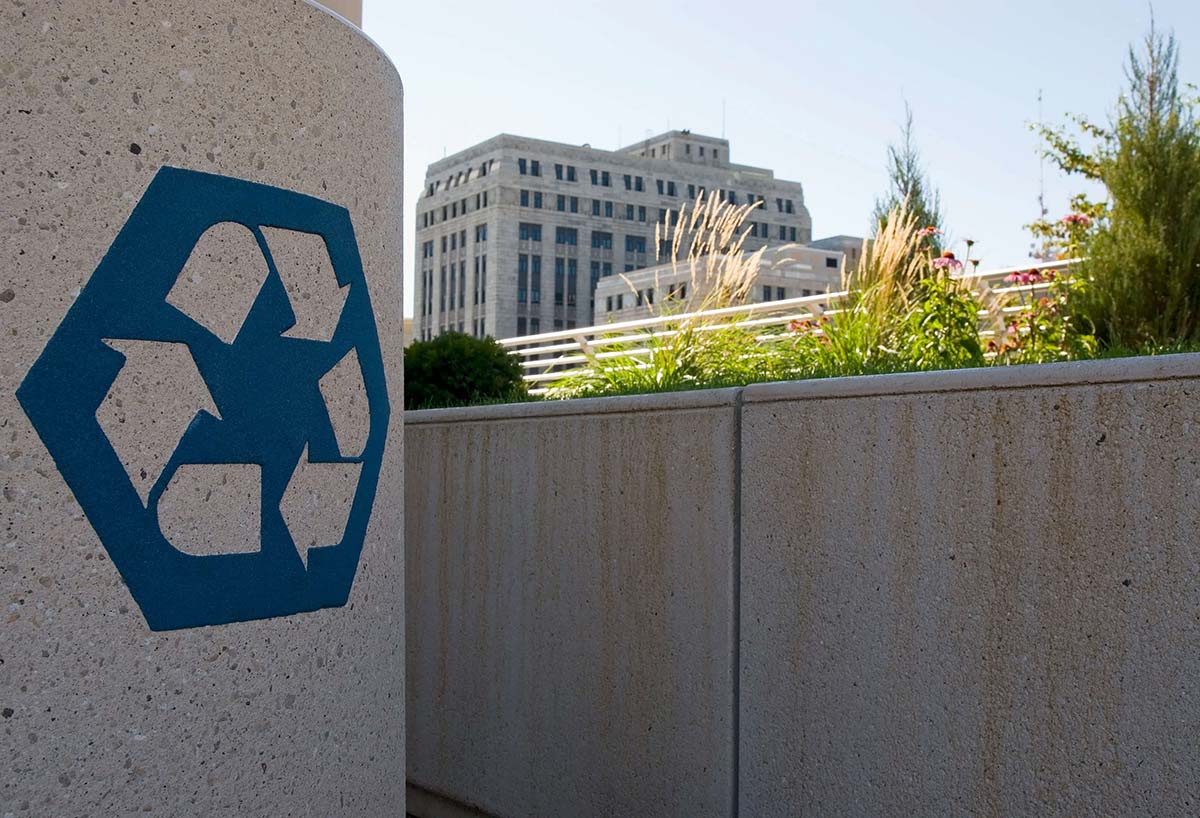Sustainability
photo credit: Kit Hogan
Frank Lloyd Wright: Organic Architect
Monona Terrace honors the legacy of renowned architect Frank Lloyd Wright through its sustainability initiatives. Before the world was talking about green buildings, Wright pioneered an organic approach that employed local materials and solar orientation. His designs reflected the landscape and created an intimate relationship between humans and nature. Wright first envisioned Monona Terrace at its present site in 1938. His dream became a reality 59 years later.
US Green Building Council’s LEED-EB Award
In November 2021, Monona Terrace was certified as a “green building” at the Platinum Level by the U.S. Green Building Council’s prestigious Leadership in Energy and Environmental Design for Existing Buildings (LEED-EB) program. Monona Terrace was previously certified at the Gold Level in 2015, and the Silver Level in 2007. This award recognizes the continued efforts of Monona Terrace to promote a whole-building approach to sustainability.
EARTH FRIENDLY IS CUSTOMER FRIENDLY
Sustainability at Monona Terrace
Monona Terrace and Monona Catering partner with a local composting service to turn food waste into quality soil. The project annually diverts over 35,000 pounds of organic kitchen waste from landfills, reducing the production of methane into the atmosphere. The organic materials are then recycled into a nutrient-rich soil amendment used by area farmers.
Monona Terrace uses environmentally safe cleaning products to help protect indoor air quality.
Monona Catering uses china dishes and cloth napkins for the majority of events and offers recyclable products to guests when necessary. Locally sourced foods are prominently featured on menus when possible. Each year an average of 5,500 pounds of food is donated to local pantries.
Monona Terrace recycles over half of its solid waste including used and outdated electrical equipment. Single stream recycling provides convenience to guests by offering one container for all their recyclables.
Monona Terrace has installed high efficiency plumbing fixtures, appliances, and a drip irrigation system resulting in water usage that’s 43 percent below the LEED benchmark.
Monona Terrace uses green energy purchases to offset 100 percent of electric power consumption and 100 percent of non-electric carbon emissions. On average, each year we offset 3,950,185 kWh of electric power consumption by purchasing certified clean source electricity, and save 816 metric tons of non-electric carbon emissions. Additionally, Monona Terrace uses 27 percent less energy than similar facilities in comparable climates across the nation.
Monona Terrace’s interior lighting fixtures are light-emitting diode (LED), which are highly energy-efficient and last longer than other types of lighting.
Monona Terrace’s gardens host over 6,800 square feet of native prairie plantings that conserve water and attract important pollinators. Those plantings are used to reseed other City of Madison green spaces.
THOUGHTS ON BEING GREEN
Sustainability Blog
The Impact of Going Green at Your Next Meeting
As a meeting planner, it’s important to stay ahead of the sustainability curve by presenting attendees with venues and services that are held to the highest environmental standards. Many [...]
Working Together To Achieve a Green Meeting
As a meeting planner, your number one priority is to make sure that your attendees are happy and satisfied. However, meeting planners also feel a growing obligation to be environmentally-conscious, choosing meeting options that [...]





